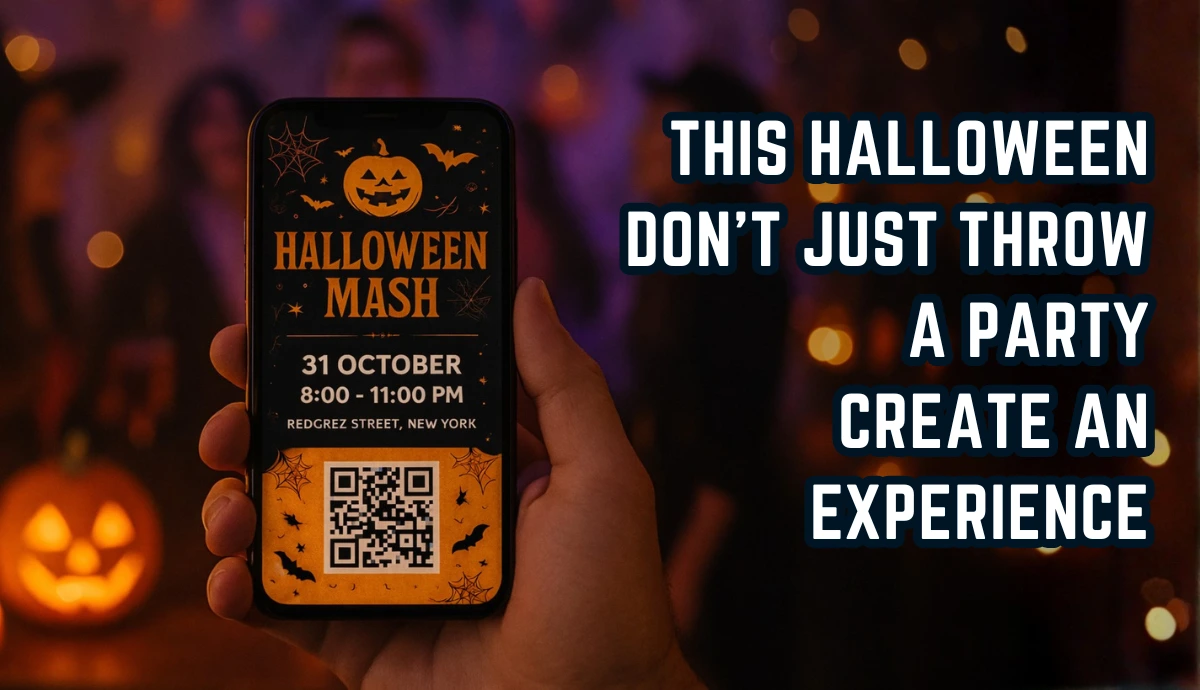From schedule management, event registration, and data analytics to QR code check-ins, innovative event app features demonstrate the transformative power of event apps.
As the events landscape continuously evolves, the role of event apps will undoubtedly become more central. This will shape how event organizers plan, implement, and experience events.
If you’re looking for an event app and there are too many options to choose from, we are here to help. This guide will discuss crucial event app features you must consider while choosing your event app.
A. What is an event app?
Event apps are tools to connect and engage with your audience before, during, and after the event. Event app features help streamline your event planning and management process making it convenient for organizers and attendees to buy, sell tickets, and connect. The ultimate goal is to improve the attendee experience and event outcomes.
Some of the prominent event app features include:
- Ticketing and registration
- A map of the event facilities and event venue
- Creation of digital tickets and bulk distribution
- Speaker/presenter information
- Safe and easy check-in options
- Complete customization with event logos, font, and other branding elements
B. What are the benefits of event app features?
Event app features work just like a regular app. However, each app is slightly different because it is tailored to a specific event.
You can still find many of the same event app features and functions in every event app. For example, a user may be able to view the event schedule, register and buy, and even choose venue seats
To understand event apps on a deeper level, let’s go through some unique benefits of event app features:
1. Breaks down the user journey
Event app features will help you discover the answers to crucial questions - What made the attendees learn about the event? What are their expectations? Why did they decide to attend?
These questions help break down the user journey regarding their priorities, challenges, and reasons for attending the event. You’ll also learn about the content they engage with and how they respond to various aspects of the event.
2. Attracts more sponsors
Sponsors are a crucial part of event profitability. However, you need to offer a lot more in return to attract sponsors. One of the greatest things you can offer is exposure- the more exposure, the more sponsorship value.
Event app features will help you do just that. To increase the value of a sponsorship, you can include them in the app directory or simply embed a link to their website or landing page. This will make sure attendees can directly engage with your sponsors. In addition, sponsors can track engagement from attendees with special links or codes to know how far they have succeeded.
3. Distribute information at scale
One of the greatest benefits of event apps is that they allow you to connect with a mass audience at scale. Your need to spend money on printed materials significantly reduces, and the purpose gets over once the event ends. All your content is stored digitally in event apps, where guests can refer to them whenever they want. Plus, everyone gets easy access.
4. Access to event analytics
Event apps allows organizers to track their event’s success. In the past, organizers could only rely on limited metrics like registrations, check-ins, and revenue and visually gauge audience sentiment and engagement.
But times have changed for the better. Now, event apps can collect more data at scale, allowing organizers to keep this data and use it to compare event performance over time.
C. How to choose the best event app?
Now that you have a basic understanding of event app features and their benefits let’s look at the crucial factors that will help you choose the best event app.
1. Ease of adoption
The event app you choose should be easily adaptable, not just for your team, but stakeholders, guests, and speakers as well. Irrespective of tech literacy, the event app’s interface should be straightforward and ensure 100% adoption.
The interface should also offer enough flexibility to allow organizers and other stakeholders to browse through effortlessly. Prioritize event management app features that allow customization and personalization based on your event and brand needs.
2. List of features
The ideal list of event app features depends on your needs and goals. Usually, event managers search for solutions that cover the following basic features:
- Instant communication abilities such as announcing changes and updates, sending reminders, venue maps, etc.
- Provide event information concerning location, event schedule, list of speakers, contact details, etc.
- Registration and ticket distribution
- Unique ticket generation and QR code check-ins
- Data collection for instant and after-event evaluation
3. Usability
App usability is also one of the most important features event managers consider when choosing an event app. A visually engaging design and an intuitive interface are important factors for enhancing the user experience. A seamless design and simple usage can result in significant outcomes.
4. Free trial
Free trials are a safer way to decide if an event app fits your objectives. It gives you the advantage of evaluating the app's work and practicing before you purchase it. Most SaaS products already practice the policy of free trials to attract more leads. Using a product on a free trial will allow you to evaluate:
- Design and user interface
- User experience
- Price and features
D. Must-have event app features
Multiple event app providers on the market present different features and approaches. To find the perfect event app, consider these features:
1. Event ticketing and registration
Event ticketing, registration, and sales should be the primary functions of your event app. The best event app should offer features like:
- Customization of the registration process
- Approval of each registration automatically or manually
- Setting a limit on the total number of registrations received
- Allowing only one registration per guest
- Setting a deadline for receiving registrations
- Registration approval status
- Payment statuses
- Attendee details
2. Customization
An event app should be able to reflect your brand’s style guidelines, allowing you the liberty to personalize it.
The key areas for customization should include:
- Event cover image
- Basic event details such as schedules and timings
- Event description and guest instructions
- Venue map location
- Organizer and sponsor details
- Social sharing options
- Document uploads
- Custom fields
3. Push and email notification
Notifications are great to encourage engagement and continued interaction with your attendees throughout the event. Your event app features must include:
- Live notification during the event to inform attendees about session updates, timings, and your sponsor’s content
- Announcement of last-minute changes to avoid any confusion and ensure the event is carried on seamlessly
- Notifications via email to cover all communication touchpoints
4. Reports and analytics
Data is crucial to understanding the performance of any event. Choose an event app that offers accurate and intuitive insights on the following metrics:
- Total number of visits on the event registration page by selected period
- Total number of registrations received in a specific period
- Registration approval rate or the ratio of registrations approved against the total registrations received
- Overall event attendance
- Periodic attendance to identify the busiest hours of the event
- Total number of tickets validated by each co-ordinator
- Number of valid, invalid, and duplicate entries
- Number of re-entries allowed by coordinators
5. Event flexibility
Choose an event app designed to adapt to any application flexibly. Whether you’re hosting a virtual or hybrid event like any conference or customer event, the app should cover every event. With just a few changes to the structure, titles, and presentation, you should manage both virtual and offline events.
6. Bulk ticket generation and distribution
Choose an event app that allows you to generate multiple tickets with unique information (guest names, hall numbers, seat numbers) in one go. You can then download them as a PDF and send them directly to the attendees via email, phone, or WhatsApp.
7. Secure tickets with QR codes
Event security is of utmost importance, especially in public events. Choose an event app that offers unique or one-time use tickets to avoid any illegal break-ins. Platforms like Ticket Generator allow you to create a unique QR code for every ticket. It contains essential ticket information that is validated at the entry within seconds to speed up safe check-ins.
8. Data security and GDPR compliance
Data security should be the topmost priority of any event app and there should be zero compromise. Ensure the event app you choose follows the best industry practices for information security. Some of the important certifications and compliances include
- ISO 27001
- SOC1 and SOC2 certifications
9. Indoor venue maps
Event signs and signages cannot help your attendees reach the right venue in most cases. Choose an app where you can provide an event venue map to ensure attendees reach the desired venue on time. The map should contain clear directions to different speaker sessions, a seating arrangement layout, a sponsor hub, a food court, and a help desk.
E. Explore powerful event app features with Ticket Generator
To make your next event a truly memorable experience for your attendees, try out Ticket Generator. It is all-in-one event management software with powerful event app features to help you achieve all your revenue goals.
With its state-of-the-art event app features like seamless registration and ticketing, brand customization, generation, and more, you will surely take the attendee experience to the next level.
Sign up now to know more!






.gif)






